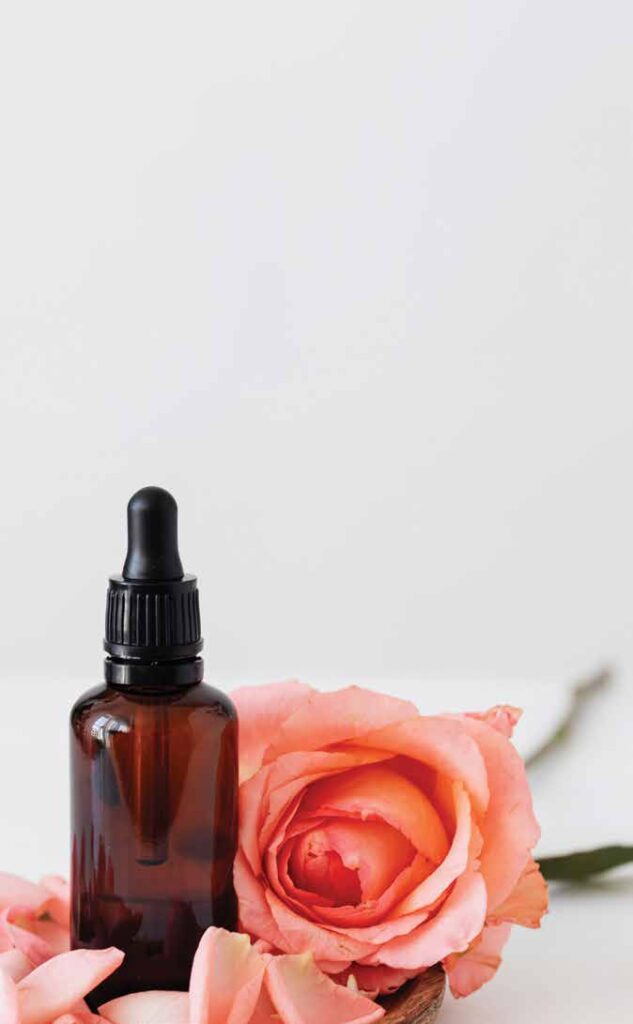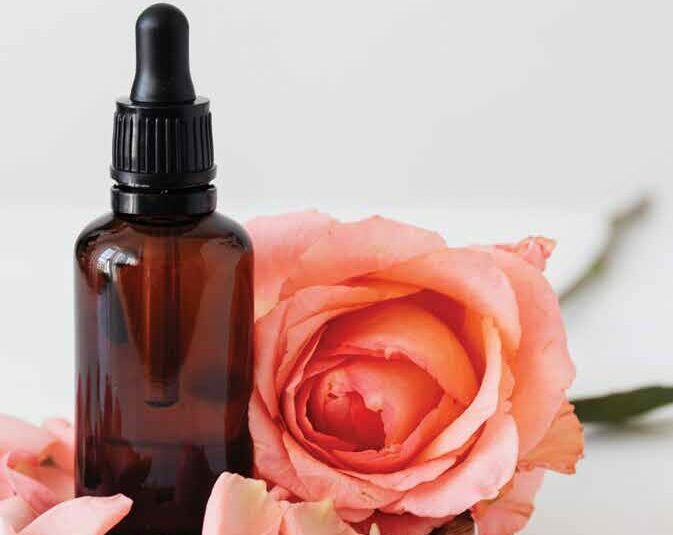

Essential oils have been used for millennia. As far back as 4,500 B.C., ancient Egyptians combined flowers, leaves, and other plant parts in fatty oils for ceremonies and healing. Hippocrates, the father of modern medicine, even noted, “A perfumed bath and scented massage everyday is the way to good health.”
Fast-forward to the 21st century. Fragrant oils have gone mainstream. When inhaled or applied directly to the skin, these concentrated plant extracts offer a range of benefits, from boosting mood, improving sleep, and reducing inflammation to relieving headaches, nausea, and anxiety and destroying fungus and bacteria.
Some of the more popular oils include gentle lavender to promote relaxation; peppermint to fight fatigue, relieve headaches, and improve digestion; eucalyptus to clear congestion; and antifungal, antiseptic tea tree. Their beneficial compounds are extracted through pressing or steaming specific parts of each plant. Oils can be made at home but keep in mind that it takes an enormous amount to create each scent. For example, it takes 250 pounds of lavender to produce a pound of essential oil. It may be simpler to purchase essential oils online or at a local pharmacy, skincare store, or spiritual shop.
When shopping for essential oils, be sure they’re made from actual plants versus being synthetically produced. The latter may smell nice but will prove far less effective. Since the oils are already so concentrated, it’s best to dilute them in vegetable oil, bath gel, or body cream. Or simply use a drop or two in the bath or shower for relaxation or as a decongestant.
Most essential oils will retain their potency for up to a year when stored in a bottle in a cool, dry place. They should be kept away from pets and children since they can cause harm if ingested or misused. Also, proceed cautiously during pregnancy since the oils might stimulate contractions.
Dab a few diluted drops of peppermint oil on your temples to calm a headache. Use a diffuser to release scents into the air, or purchase a bottle with a roll-on applicator for easier use. Special blends, such as cinnamon bark, clove, eucalyptus, and rosemary, can be found to help combat an oncoming cold. Try different oil combinations or consult an aromatherapist to learn more about the myriad beneficial properties of each essential oil.



